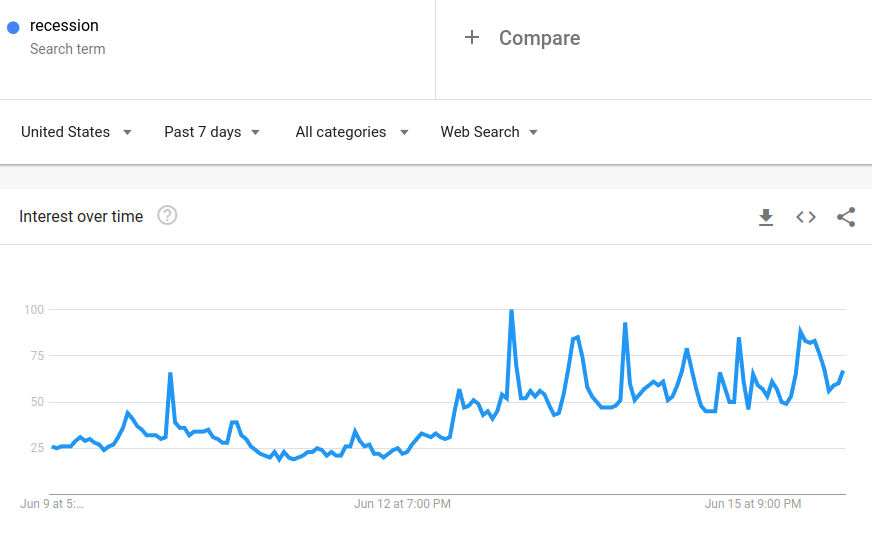Over the past 7 days, Google search volume for queries containing the word “recession” have more than doubled (see graph below):

Various versions of the query “what is a bear market” surged over 50-fold. Additionally, variations of many other fear-sentiment queries have increased in volume:
- “what happens during a recession”
- “recession vs bear market”
- “how long will this recession last”
- “how long do bear markets last”
- “how to prepare for a recession”
- “recession-proof businesses”
- “recession-proof jobs”
- “will i lose my job in a recession”
- “what to do with 401k during recession”
These are opportunities for anyone in the recruiting, employment services, or financial services industries (because you have the answers & expertise to help people answer the queries above).
For other consumer-facing businesses, this data is a warning. The queries indicate a growing fear among Americans that they will lose their job and/or lose their investments. They also indicate growing financial conservativism with focus on “preparation”. That means consumer spending will likely continue to decline in inflation-adjusted terms. That will hurt the top line revenue of many consumer-facing businesses.
If you’re an investor, now is probably not the best time to buy the dip in stocks unless you’re a very good stock picker.
Subscribe to the Axiom Alpha Letter to get information like this straight to your inbox (it’s free!)